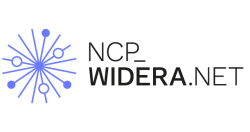About ERA Calls 2021-2022
Short overview of ERA calls 2021 – 2022 results
Reforming and enhancing the EU research and innovation system is a part of the Horizon Europe (HE) programme and its main aim is to strengthen and improve the European Research Area (ERA) – generally referred to as ERA calls. Both calls from the years 2021 – 2022 have already been evaluated and therefore we can provide a brief overview of the results (the numbers of grants can still increase in case of additional budget available that would allow funding of few more projects from the reserve list). The ERA calls, similarly to Pillar 2 clusters calls, are structured by topics, not by instruments (as is the case of the Widening part supporting countries less advanced in research and innovation), and the coordinator can be a legal entity from any EU Member State or Associated Country.
The ERA 2021 call (HORIZON-WIDERA-2021-ERA-01) included 18 topics and 44 project proposals were submitted by the deadline of 23 September 2021. According to the overall indicative budget for 2021 call (61.50 M€), 26 projects were expected to be funded. However, only 20 of the 44 evaluated proposals succeeded to receive a grant. No grant was awarded in three topics: 2021-ERA-01-30 Macro-economic modelling, 2021-ERA-01-33 IP management and 2021-ERA-01-50 Protection of HEIs from threats. Regarding the coordinators´ country of origin, Belgium and Germany are coordinating 3 projects each, followed by France, Ireland, Spain and the UK with 2 projects each and Czechia, Denmark, Italy, the Netherlands, Norway and Greece 1 project each.
The ERA 2022 call (HORIZON-WIDERA-2022-ERA-01) included 14 topics and a total of 120 project proposals were submitted by the deadline on closing date of 20 April 2022 but 22 of them were not eligible and therefore not evaluated. According to the overall indicative call budget (59.00 M€), 25 projects were expected to be funded. In reality, the grant was awarded to 24 project. Regarding the coordinators´ country of origin, Italy was the most successful with 5 projects, followed by Belgium with 4, the Netherlands and Spain with 3 and France with 2, Finland, Ireland, Hungary, Germany, Norway, Austria and Turkey are coordinating 1 project each.
(Anna Vosečková, TC CAS, Czechia).












